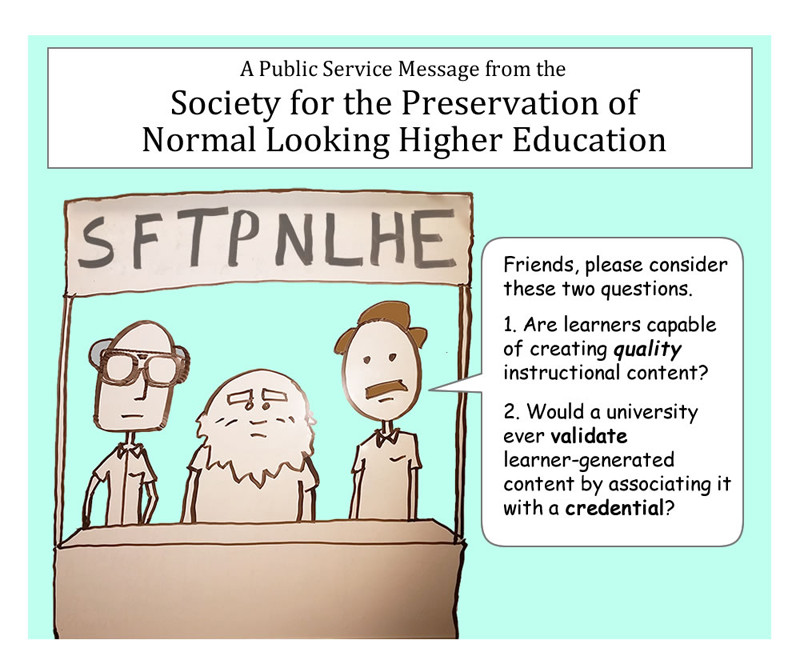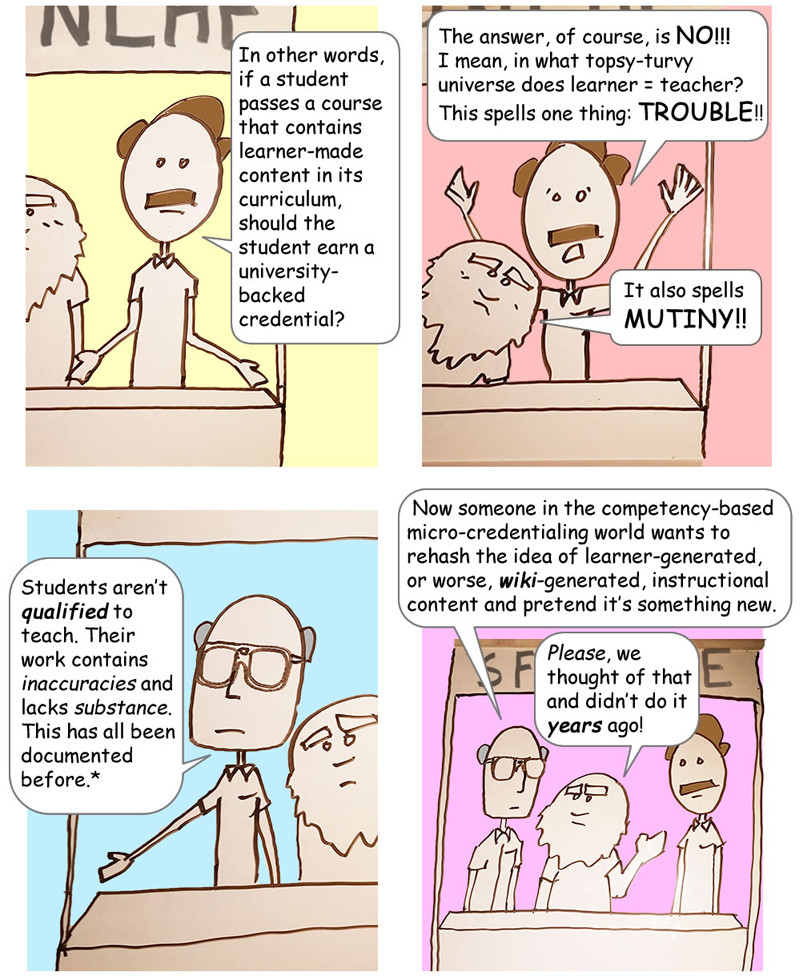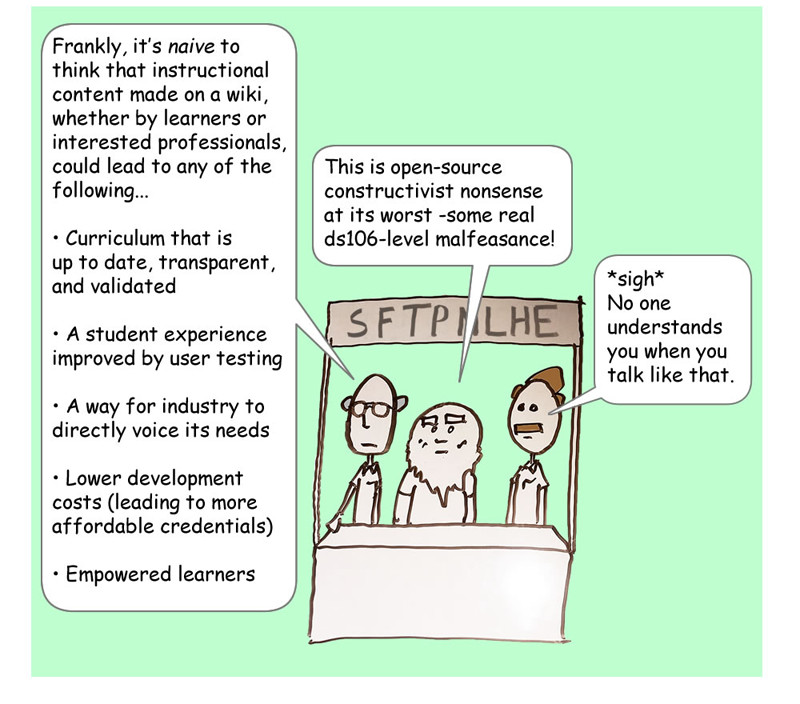Call to Action
At the University of Wisconsin–Extension CEOEL, we are trying something new: a pilot course that uses learner and user-generated instructional content. The experimental pilot will be offered through our competency-based micro-credentialing platform the University Learning Store. You, along with students and other interested professionals, can help us build the course!
The subject of the course is Human Resource Management: Creating a Training Plan. An unfinished draft of the course is available for editing now on Wikiversity (a sibling of Wikipedia). We sincerely hope you will take a look and contribute.
https://en.wikiversity.org/wiki/Create_a_training_and_development_plan
Why Are We Doing This?
There are several reasons we believe learner- and user-generated content is worth investigating in the context of micro-credentialing. First and foremost, we want to offer learners affordable credentials that employers value. Instructional content that is user-generated yet also validated by experts might be a way to offer learners high-quality university-backed credentials at a price they can afford.
A second reason has to do with giving industries and employers a voice in the education of potential future employees.
Third, wouldn’t it be great if there was a sustainable way for higher education to create OERs (open educational resources)? Learner- and user-generated wiki content could do that!
What Is the University Learning Store?
A first in nonprofit higher education, the University Learning Store offers a practical and affordable way for learners to earn credentials that hold real value in today’s job market.
The University Learning Store is a partnership among a prestigious group of universities to create a new kind of credential. ULS credentials…
- Are competency-based and verified by employers
- Use authentic assessments to prove learner proficiency
- Can be completed in just days or weeks
- Contain competency summaries that tell employers exactly what you know and can do
* For instance:
Keen, A. (2007). The Cult of the Amateur: How today’s Internet is killing our culture and assaulting our economy. London: Nicholas Brealey Publishing.



Leave a Reply
You must be logged in to post a comment.